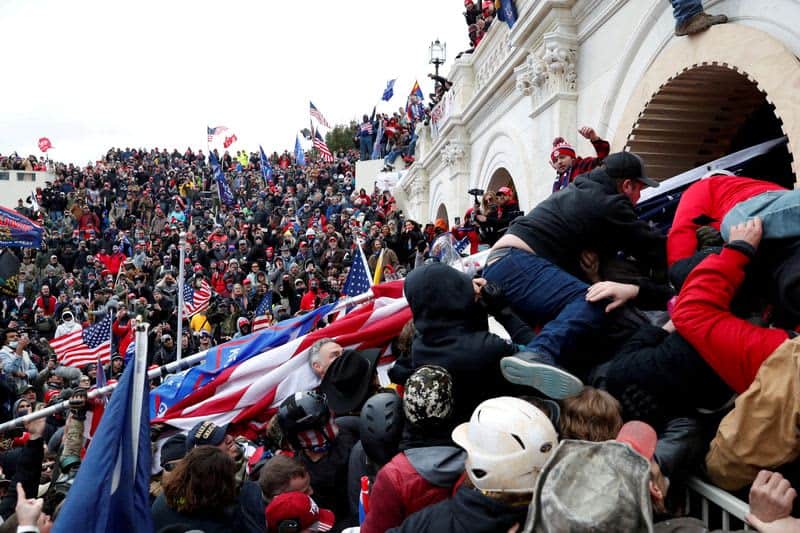Reuters

(Reuters) – The Democratic-led U.S. House of Representatives select committee investigating the Jan. 6, 2021, attack on the Capitol has been working for almost a year, interviewing witnesses and amassing documents ahead of public hearings set to start on Thursday.
Here are some facts about the investigation.
MULTIPLE DEATHS
Thousands of supporters of Donald Trump attacked the Capitol, the home of Congress, in a bid to stop formal certification by U.S. lawmakers of the Republican then-president's 2020 election loss to Democrat Joe Biden, causing millions of dollars in damage. Four people died on the day of the attack, and one Capitol Police officer who fought against the rioters died the next day. Four officers have since taken their own lives and 140 others were injured.
THE COMMITTEE
Nine House members sit on the committee, which Democratic House Speaker Nancy Pelosi created on July 1, 2021, after Republicans prevented creation of a bicameral commission.
Its seven Democrats include Representative Bennie Thompson, the panel's chairperson, as well as Representatives Zoe Lofgren, Elaine Luria, Adam Schiff, Pete Aguilar, Stephanie Murphy and Jamie Raskin.
The panel's two Republicans, Representatives Liz Cheney – the vice chairperson – and Adam Kinzinger, were censured by the Republican National Committee for their participation. The RNC had never before censured any sitting congressional Republican.
THE INVESTIGATION
The committee and its dozens of investigators have conducted more than 1,000 depositions and interviews. Most people who are interviewed have not been identified, but those known to have appeared include Trump's daughter and close adviser Ivanka Trump, her husband, Jared Kushner, and attorney Rudy Giuliani.
To compel testimony and obtain documents, the committee has announced it has issued 99 subpoenas and is known to have issued more that have not been made public.
Some of the most notable known subpoenas have been sent to Mark Meadows, a former congressman who served as a Trump White House chief of staff; Steve Bannon, a former Trump adviser; Roger Stone, a long-time Republican operative; Trump's son Eric; major social media firms; and leaders of the far-right Proud Boys and Oath Keepers groups that have backed Trump.
The committee has amassed a trove of more than 140,000 documents and has followed up on 472 tips from its tip line.
CONTEMPT OF CONGRESS
The House has voted, largely along party lines, to recommend contempt of Congress charges for four Trump associates for refusing to cooperate. Trump has urged former aides to disregard committee subpoenas.
The House recommendation referred the four cases – Bannon, Meadows and former top Trump administration aides Peter Navarro and Daniel Scavino – to the Justice Department to decide on whether to bring criminal charges, which bear a penalty of up to a year's imprisonment and a fine up to $100,000.
The Justice Department has pursued charges against Bannon in a case set to go to trial in July, as well as against Navarro. It has not charged Meadows or Scavino.
The committee also recommended charges for a fifth person, Jeffrey Clark, who was a senior Justice Department official during the Trump administration. The full House never voted on the charges after Clark agreed to a deposition.
CRIMINAL PROSECUTIONS
Nearly 850 people have been arrested for crimes related to the attack on the Capitol, including more than 250 charged with assaulting or impeding law enforcement. Over those, about 90 have been charged with using a deadly or dangerous weapon or causing serious bodily injury to an officer.
More than 300 people have pleaded guilty to a variety of federal charges, 59 of those to felonies.
Sixteen people who were members of or affiliated with the right-wing Proud Boys and Oath Keepers have been charged with seditious conspiracy, which carries a prison sentence of up to 20 years.
Six individuals have been found guilty at trials.
(Compiled by Patricia Zengerle; Editing by Scott Malone, Nick Zieminski and Will Dunham)



